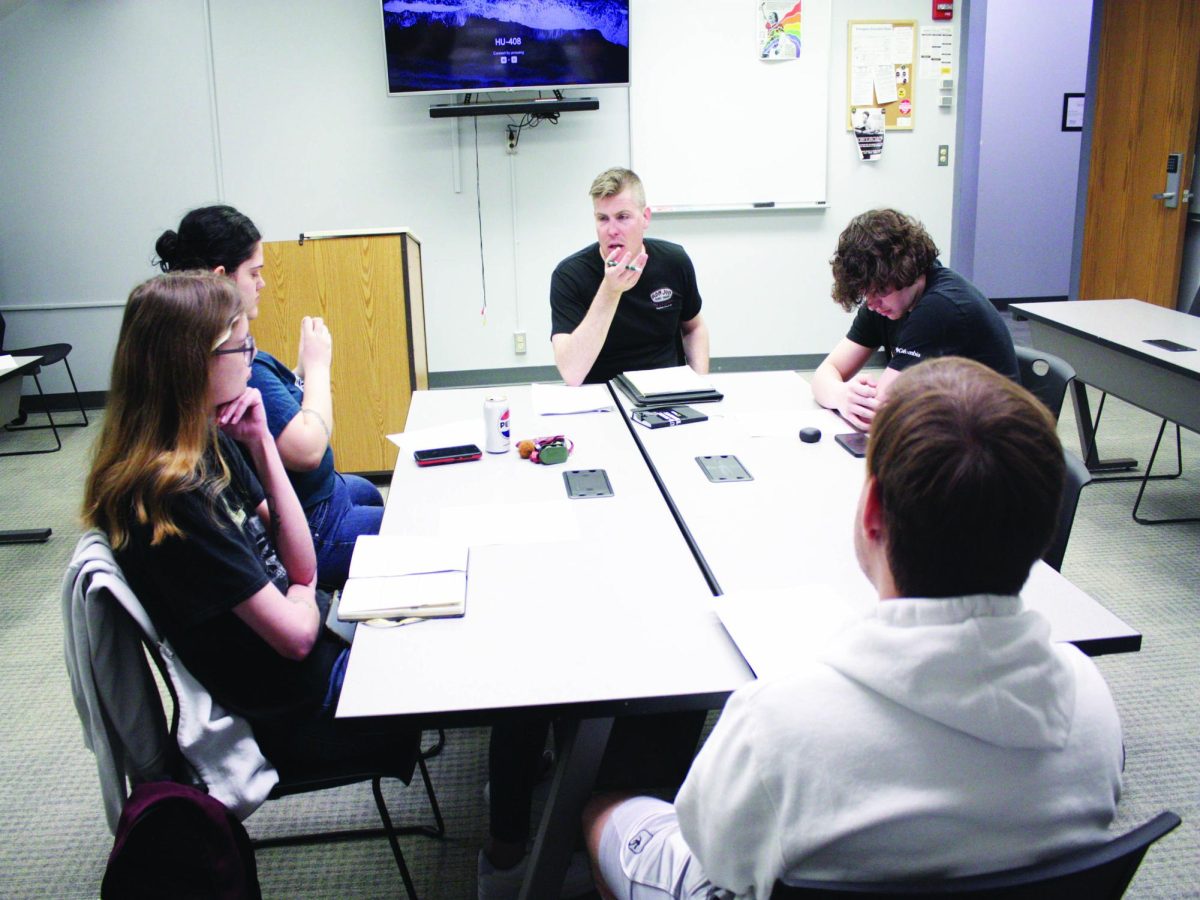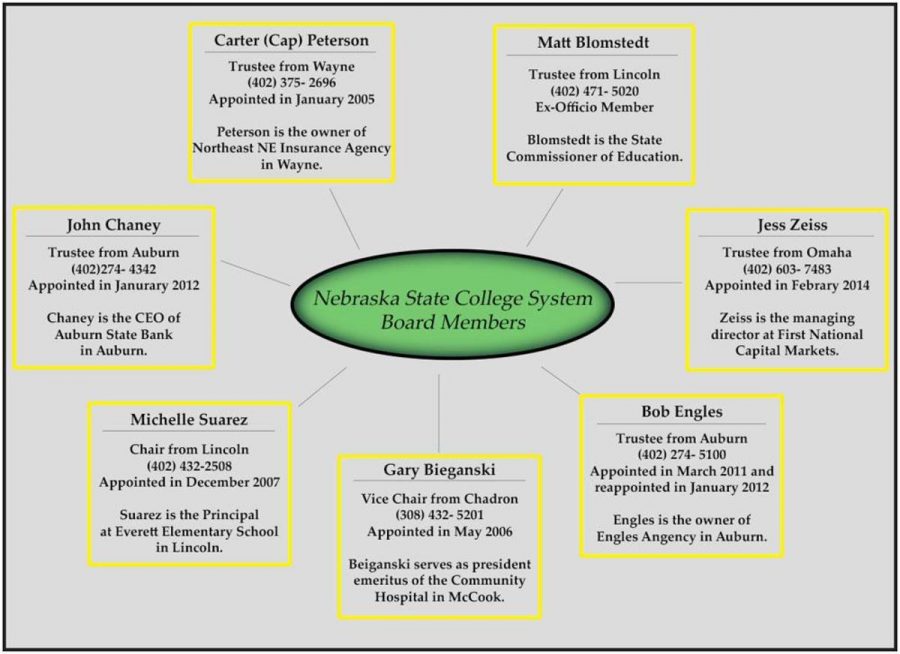Failure to communicate stains system
Faculty Senate moves to improve relations with NSCS
March 4, 2015
Lack of communication with the Nebraska State College System and its Board of Trustees is not a problem exclusive to student media.
Wayne State College’s Faculty Senate also has concerns about communication between the colleges in the system and the system itself.
“There are no avenues of communication between the Board, who make the policy, and the people who work here,” Faculty Senate chair Dr. Mark Leeper said. “It feeds into suspicion, erodes trust and erodes faith in the way the Board operates.”
In January, the Faculty Senate sent three resolutions to the Board suggesting changes that would open communication between the entities.
One resolution proposed asked for committees to be comprised of “all WSC stakeholders (faculty, staff, students and community members)” when hiring new administrators. This was a response to deans being hired without formal input from WSC staff and faculty.
Included in the resolution was a request that for no fewer than six faculty members be part of the committee searching for a new college president. That would include faculty from the four schools and two “at-large” faculty members, all selected from the Senate.
In the resolution, it was the hope that these six members would be involved with creating recruitment criteria, selection and final recommendations to the NSCS Board. Currently, there are four faculty members and one dean with faculty privileges on the presidential search committee.
The second proposed resolution asked ex officio members from each of the three state colleges be added to the Board of Trustees by the 2015-2016 academic year. According to the resolutions, “such a position would improve communication, generate better policy, recognize the central institutional role of faculty and is consistent the Board’s practice of including ex officio student members.”
The final resolution deals with hiring deans with tenure, a tradition in the past for WSC.
Policy 5014 states that tenured faculty members who wish to become deans have two years in which they can return to teaching and keep their tenure. After that time period, tenure is lost unless specially approved by the president and Chancellor of the NSCS.
By forcing deans to give up tenure, the Faculty Senate concluded that “without tenure, academic deans lack the independence and strength to innovate in areas of fund-raising and program and professional development.”
“It allows us to cultivate leadership from within and elevate faculty to administrative positions. If they are capable administrators, they can serve 4-6-8 years and then return to the faculty and teach and do research,” Leeper said. “If we are not allowed to hire deans with tenure or on tenure track, faculty are put in the position of agreeing to take the leadership role, thus giving up their faculty position after two years or remaining in the faculty.”
If that is the case, a potentially problematic relationship is created between deans and the NSCS.
“Without tenure, deans are totally subservient to the Chancellor, who can fire them at will. If they aren’t tenured, that ends their career. They have nowhere to go. It creates an administrative chain of command where deans are frightened of retribution or punishment by the Chancellor and less apt to strenuously advocate for faculty,” Leeper said.
“At base, we are simply requesting more robust communication and linkage between those who work at Wayne State College and the generation of Board policy,” the cover letter sent with the resolutions concluded.
Board of Trustees chair Michelle Suarez responded to Faculty Senate’s resolutions in early February. Each resolution was responded to in a letter.
In response to the issue of search committees, the Board doesn’t want to set hard fast rules for search committees.
“Since the size and composition of each College differs, no specific number of any type of representation would serve the system well,” Suarez said in her letter. She maintained that the guidelines set in policy 5101 of the NSCS policy manual, stating that the Board appoints college presidents and presidential search committees and takes recommendations from the Chancellor, are sufficient for presidential searches.
In response to having an ex officio member of faculty from all three state colleges, Suarez referred the Faculty Senate to the Nebraska state constitution, which dictates how the Board of Trustees is set up, and said the Board has no power to change that.
The Nebraska state constitution does not mention student trustee members, though the NSCS has student representatives from each school.
In response to the issue of tenure for deans, Suarez stated that the Board is considering revising policy 5014 in March and could possible extend the length of time faculty are allowed to hold on to their tenure.
The lack of communication between the NSCS and WSC was not fully addressed in Suarez’s response, leaving Leeper and Faculty Senate wondering what to do next.
“What leverage do we have? We’ve sent resolutions to the Board chair and she just kind of brushed them off,” Leeper said. “The Faculty Senate would like to see a regular presence of faculty, staff and students giving input.”
The Senate also feel that the lack of communication is not a new issue.
“The Senate’s concern with the Board goes far beyond specific policies like the Dean/tenure issue. It’s how the Board generates policies, without sufficient input or communication,” Leeper said. “The Board Office claims the President and VPAA can keep us abreast of policy proposals from the Board, but sometimes the Board will propose a policy and go through first and second readings at one weekend meeting. This leads to policies that don’t fully consider the input of concerned parties or the impact these blanket policies will have on our unique institution.”
The Faculty Senate has formed an ad hoc committee to discuss shared governance on campus as well. The committee will help mentor new faculty on their appropriate role in shared governance.







